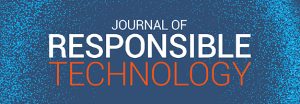Responsible quantum – from theory to practice
IEEE Quantum Week 2024: workshop on operationalising responsible quantum computing
Ten Holter, C; Oughton, N; Seskir, Z; Thibault, K; Wolf-Bauwens, M
As quantum computing technologies move towards commercialisation, there is increasing interest in their potential impact on society, evidenced by the recent publication of many national strategies and quantum technologies programmes. In the wake of lessons learned from other emerging technologies such as AI, along with increased public scrutiny and societal expectation, there is a clear need for the responsible development and deployment of quantum computing, as well as a collaborative and timely approach. A number of quantum computing institutions are already engaging on this topic, including technology providers, national bodies, prominent research institutes, and technical fora.
Recognising the importance attributed to responsible and ethical development and use of quantum computing, our workshop at IEEE’s Quantum Week 2024 aimed to move beyond definitions to explore novel contributions to the field and next steps towards operationalisation.
We were delighted to receive more paper proposals than we had space for on the day, and it was immensely encouraging to hear from many new voices in this international conversation. In a packed agenda for the conference overall we were also very happy to welcome an excellent attendance for the workshop, demonstrating the interest in these topics.
The presented papers focussed on operationalising responsible quantum computing from different perspectives, from the macro viewpoint of a national/strategic level all the way to the micro perspective of the individual corporate or student level. Themes included education, environmental considerations, and dual-use, as well as narratives surrounding quantum computing and hype.
We have summarised the papers presented at the workshop below. When the IEEE Conference proceedings are published, they will be linked from this page.
The (Short) History of “Responsible Quantum” (Zeki C. Seskir)
To give attendees some context and connect to the 2023 installment of the workshop, this talk set the scene for a discussion on operationalising responsible quantum by giving an overview of the research done in the field until 2024. It provided workshop attendees with a broad understanding of the shape of the field, emphasising the global nature of the ‘responsible quantum’ discourse.
Quantum Readiness: Unlocking the Quantum Advantage for Australian Industries (Rebecca Coates and Mohan Baruwal Chhetri)
This paper calls for a greater awareness and understanding of the concept of ‘quantum readiness’ – a proactive approach to anticipating the impacts of quantum technologies on society as well as more specifically preparing for known quantum threats such as those to cybersecurity. The authors propose a systematic approach that can be used to assess such ‘readiness’.
Anticipating the impact of the integration of disruptive technologies based on societal dialogues on quantum technology: a promising prevention tool? (Isabelle Lacroix and Karl Thibault)
The talk presented the large-scale national and city-scale local quantum dialogues project initiated and led by Universite de Sherbrooke, with the aim of enabling a discussion on the impact of quantum technologies across societal stakeholders, including technologists, industry, academia, public policy and civil society. As a research method, the project tries to understand whether creating such dialogues can function as mitigation of undesired consequences of new technologies.
Exploring Public Discourse on Quantum Technology: Overlooking Societal Implications? (Gina Pöhlmann, Charles Ma, Viktor Suter, Miriam Meckel and Lea Steinacker)
Based on a media analysis, this paper explores different narratives of quantum technologies. Given its focus on public discourse, it drew on the non-academic literature around quantum technologies, including media articles, business reports and government documents, and highlighted that the key themes were the impact of quantum technologies, security issues and geopolitical implications.
Implementing Responsible Computing Practices (Matthias Troyer)
The speaker highlighted the importance of responsible practices in classical and quantum computing, emphasizing collaboration among industry, academia, civil society, and government. It proposed adapting frameworks like “know your customer” (KYC) to mitigate dual-use risks, ensuring that quantum computing’s advancements are beneficial and ethically guided.
Steps towards operationalising responsible and ethical quantum computing at the UK’s NQCC (Natasha Oughton and Abby Casey)
The talk underscored the need for a responsible, ethical foundation in quantum computing, introducing the UK’s NQCC Quantum STATES principles for responsible and ethical quantum computing (REQC). It also discussed collaborative planning for integrating these principles into NQCC’s operations and outlined next steps for implementing REQC across the quantum computing stack.
Regulatory Conversations in Quantum Computing: Insights into early patterns and trends in academic discourse on regulating the ‘Quantum Revolution’ (Aurelija Lukoseviciene)
This paper explores regulatory needs for quantum technologies, emphasizing their potential disruptive impact and examining academic perspectives on governance themes and values. It identifies gaps and blind spots in current discussions and presents recommendations for advancing research and good practices in responsible QT regulation.
Responsible AI for Quantum AI Systems (Cassandra Feilbach)
In this talk the foundations for a Responsible Quantum initiative, leveraging insights from AI policy and responsible AI ecosystems to address ethical considerations in quantum computing was discussed. It highlighted quantum principles like entanglement and tunneling, comparing their impacts on fields such as battery prediction and weather monitoring, and outlined future strategies for businesses to responsibly integrate quantum technologies.
Advancing a Responsible Future Quantum Internet (Kian van der Enden, George Profitiliotis and Diederick Croese)
This paper evaluates the development of a responsible future quantum internet. It presents a “desired future” conceptulised through stakeholder engagement, and presents a comparison with ‘ten principles for responsible quatum innovation’ proposed in the literature. The authors conclude with recommendations for the continued success of a responsible quantum institute.
The Role of Community Building and Education as Key Pillar of Institutionalizing Responsible Quantum (Sanjay Kumar Lalta Prasad Vishwakarma, Vishal Sharathchandra Bajpe, Ryan Mandelbaum, Yuri Kobayashi, Olivia Lanes and Mira L. Wolf-Bauwens)
The paper focuses on education as one particular aspect of responsible quantum that can enable building a diverse and inclusive community. The paper discusses challenges in doing so and explores how IBM has attempted to overcome these. It explores concrete actions such as the Qiskit summer school that are aimed at increasing the diversity of the quantum community but also highlights structural challenges.
Responsible Quantum Readiness: A Perspective from Financial Services Organization (Bimal Mehta, Brooke Tuscai, Tina Wang and Kyle Mahady)
This paper proposes organisations readiness levels for developing quantum solutions based on Technology Readiness Level, incorporating the discussion of risks from ethical and regulatory perspectives. A hypothetical case study in the financial services is used to illustrate the application of the framework.
Anchoring responsible quantum readiness in quantum education (Anna Knörr and Shawn Skelton)
The authors of this talk focused on the ethical dimensions of quantum readiness and offered a vision for what responsible quantum readiness might mean for quantum students. The aim was to open discussion around the real-world impacts of quantum amongst the next generation of quantum students.
The insights shared by our expert speakers during the course of the workshop will contribute to greater shared understanding of responsible quantum efforts internationally. We look forward to enabling and moving forward these important discussions at next year’s IEEE Quantum Week.




